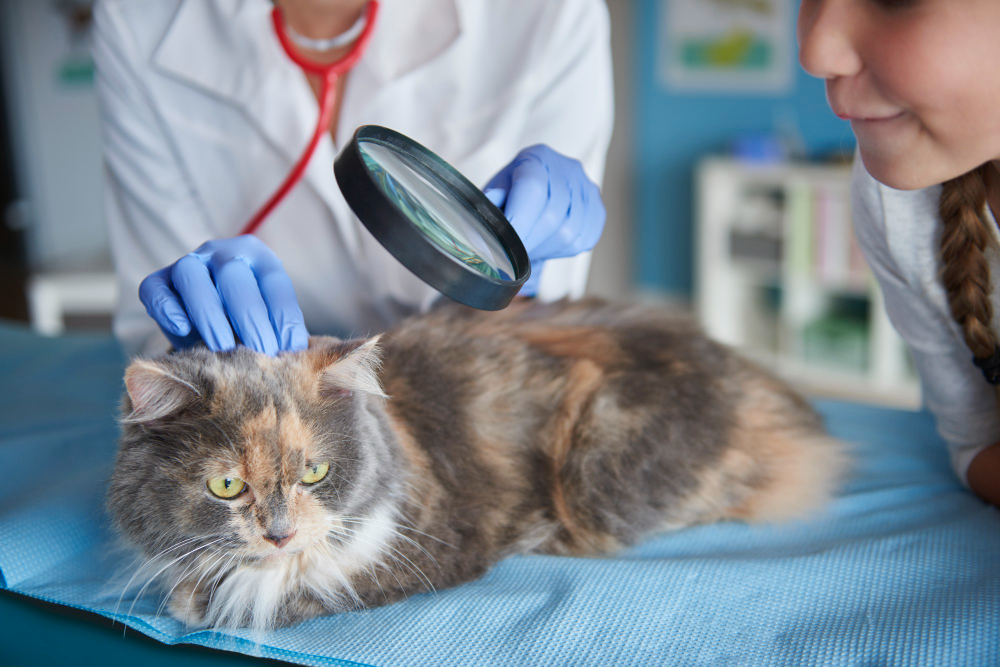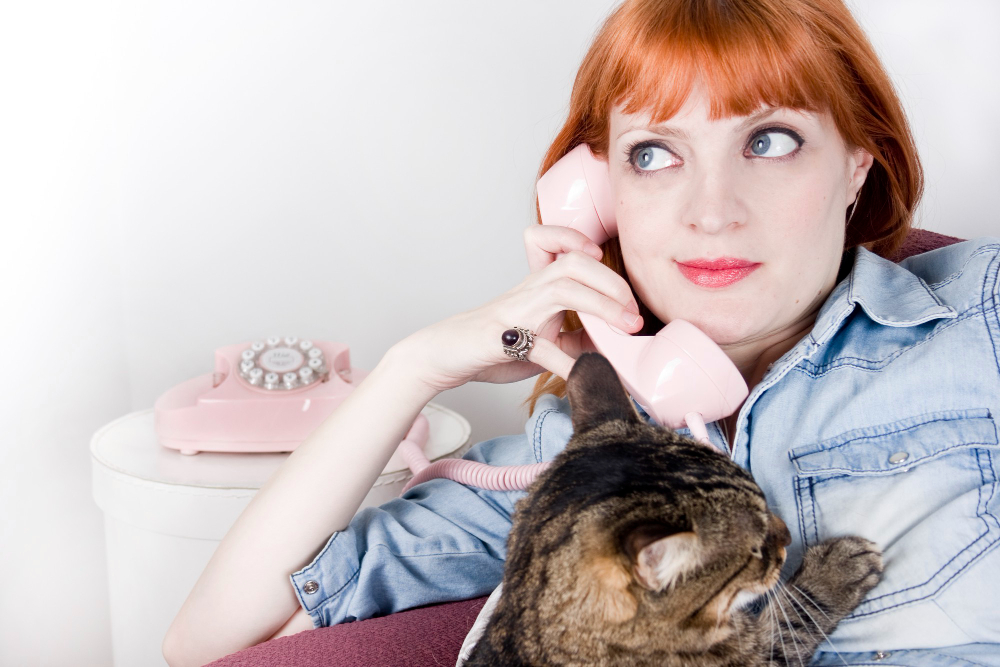Are you wondering why your cat’s pupils are big? It’s a common concern among cat owners, and there could be several reasons behind this behavior. In this article, we will explore the possible causes of dilated pupils in cats and provide you with appropriate solutions.
Dilated pupils, also known as mydriasis, occur when the black part of your cat’s eyes, called the pupils, appear larger than usual. One possible cause of dilated pupils is low light conditions. Cats have a remarkable ability to adjust their pupils to let in more light, allowing them to see better in the dark. So, if you notice your cat’s pupils getting bigger in dimly lit rooms or at night, it’s simply their way of adapting to the environment.
However, dilated pupils can also be a sign of underlying health issues. For instance, certain medications, such as eye drops or ointments, can cause temporary dilation. In some cases, dilated pupils may indicate pain or discomfort, especially if your cat is squinting or showing other signs of distress. It’s crucial to monitor your cat’s behavior and consult a veterinarian if you notice any concerning symptoms.

Remember, dilated pupils in cats can have various causes, from normal environmental adjustments to potential health problems. By understanding the possible reasons behind this behavior, you can ensure the well-being of your feline friend and provide appropriate care when needed.
1. Why Are Your Cat’s Pupils Dilated? Unraveling the Mystery.
Cats are fascinating creatures, and one of their most intriguing features is their eyes. Have you ever wondered why your cat’s pupils dilate? Let’s delve into this captivating mystery and uncover the reasons behind it.
The Role of Light
Understanding how light affects a cat’s eyes is crucial in unraveling the mystery of dilated pupils. Cats have a unique ability to adjust their pupil size depending on the amount of light they are exposed to. When it’s dark, their pupils dilate to let in more light, enhancing their night vision.
Emotional Responses
Apart from light, a cat’s emotions can also cause their pupils to dilate. Fear, excitement, or even aggression can trigger this response. By observing your cat’s body language and the context of the situation, you can gain insights into their emotional state.
By exploring the reasons behind your cat’s dilated pupils, you can better understand their behavior and provide appropriate care when needed.
How to Fix Dilated Cat Pupils: Practical Solutions
Cats with dilated pupils can be a cause for concern, but there are practical solutions to help alleviate the issue.
1. Reduce Stress
Creating a calm and comfortable environment for your cat can help reduce stress and prevent dilated pupils. Provide a quiet space, avoid sudden loud noises, and use pheromone sprays or diffusers to promote relaxation.
2. Check for Pain or Illness
Dilated pupils can be a sign of pain or illness in cats. It’s important to check for any physical discomfort or underlying health issues. If necessary, consult with a veterinarian to address the root cause.
3. Monitor Lighting
Bright lights can cause cat pupils to dilate. Ensure that your cat has access to both well-lit and dimly lit areas to allow their eyes to adjust naturally.
4. Play and Exercise
Engaging your cat in regular play and exercise can help reduce stress and promote overall well-being, which can in turn help regulate pupil size.
By implementing these practical solutions, you can help your cat find relief from dilated pupils and ensure their overall health and happiness.
Common Reasons Why Cat Pupils Dilate: Explained
Potential Causes of Dilated Cat Pupils
– Stress and fear can cause a cat’s pupils to dilate as a natural response to a perceived threat.
– Medical conditions such as high blood pressure, glaucoma, or neurological disorders can also lead to dilated pupils in cats.
– Certain medications or substances, like certain eye drops or drugs, may cause temporary dilation of the pupils.
– Excitement or arousal can also cause a cat’s pupils to dilate, especially during play or hunting activities.
Signs to Look Out For
– If your cat’s pupils remain dilated for an extended period or if they are accompanied by other concerning symptoms, it is essential to seek veterinary attention.
– Other signs to watch for include lethargy, loss of appetite, changes in behavior, or difficulty seeing.
Remember, dilated pupils in cats can be a normal response to certain situations, but it is crucial to monitor your cat’s overall health and seek professional advice if you have any concerns.
What Should I Do About My Cat’s Dilated Pupils? Expert Advice.
Seeking Professional Help
If you notice that your cat’s pupils are consistently dilated, it is crucial to seek advice from a veterinarian. They can conduct a thorough examination to determine the underlying cause. Remember, a dilated pupil can be a sign of a serious medical condition that requires immediate attention.
Observing Other Symptoms
Pay close attention to any other accompanying symptoms your cat may be experiencing. Is your feline friend showing signs of lethargy, loss of appetite, or behavioral changes? These additional symptoms can provide valuable clues to the root cause of the dilated pupils. Be sure to communicate these observations to your vet for a more accurate diagnosis.
Taking prompt action and seeking expert advice is essential when it comes to your cat’s health. Remember, your furry companion relies on you to be their advocate and caretaker. By staying vigilant and proactive, you can ensure your cat receives the necessary care and treatment they need.
Why Is Your Cat’s Pupils Dilated? Understanding the Causes
Exploring the Various Factors Behind Dilated Cat Pupils
As a cat owner, it’s important to understand why your feline friend’s pupils may appear dilated. There can be several reasons for this phenomenon, and it’s crucial to be aware of them in order to provide the necessary care.
One possible cause of dilated pupils in cats is low light conditions. Cats have a remarkable ability to adjust their pupils to let in more light, allowing them to see clearly in dimly lit environments. Another factor could be excitement or fear, as cats’ pupils tend to dilate in response to heightened emotions.
Medical conditions such as hypertension, glaucoma, or even neurological issues can also lead to dilated pupils. It’s crucial to consult a veterinarian if you notice persistent dilation, as it could be indicative of an underlying health problem.
Understanding the causes behind your cat’s dilated pupils will enable you to take appropriate action and ensure their well-being.
How to Fix Dilated Pupils in Cats: Effective Strategies
Dilated pupils in cats can be a cause for concern, but there are effective strategies to help address this issue. One possible solution is to create a calm and stress-free environment for your cat. This can be achieved by providing a comfortable and secure space for them to retreat to, away from any potential triggers. Additionally, engaging in interactive play and providing mental stimulation can help distract your cat and alleviate any underlying anxiety or stress.
Another strategy is to consult with a veterinarian to rule out any potential medical conditions that may be causing the dilated pupils. They can conduct a thorough examination and run necessary tests to determine the underlying cause. If a medical issue is identified, the veterinarian can provide appropriate treatment or medication to address the problem.
In some cases, dilated pupils may be a normal response to certain situations, such as low light conditions or excitement. However, if you notice persistent or extreme dilation, it is important to seek professional advice to ensure your cat’s well-being.
Common Reasons Why Cat Pupils Enlarge: Insights and Solutions
Cat owners often find themselves puzzled when they notice their feline friend’s pupils enlarging. Understanding the reasons behind this phenomenon can provide valuable insights and help find suitable solutions. One common cause of dilated cat pupils is low light conditions. Cats have a remarkable ability to adapt to different lighting environments, and their pupils naturally enlarge to let in more light in dimly lit areas. Additionally, fear or anxiety can also cause pupil dilation in cats. When cats feel threatened or scared, their bodies enter a fight-or-flight response, which includes dilating their pupils to enhance their visual perception. Other potential reasons for enlarged cat pupils include medical conditions such as hypertension or neurological issues. If you notice persistent pupil dilation in your cat, it is crucial to consult with a veterinarian to rule out any underlying health problems.










